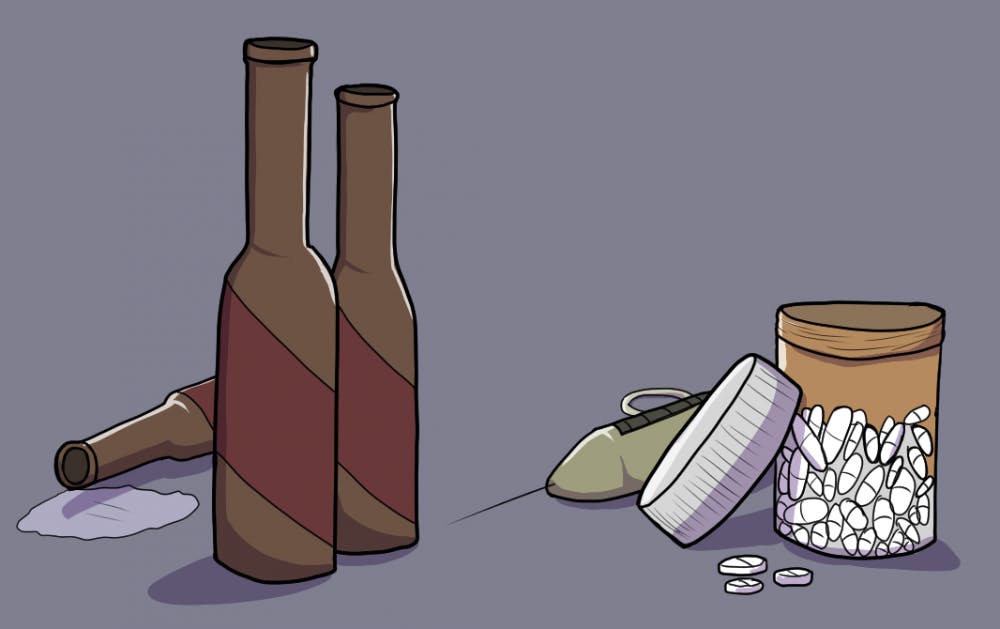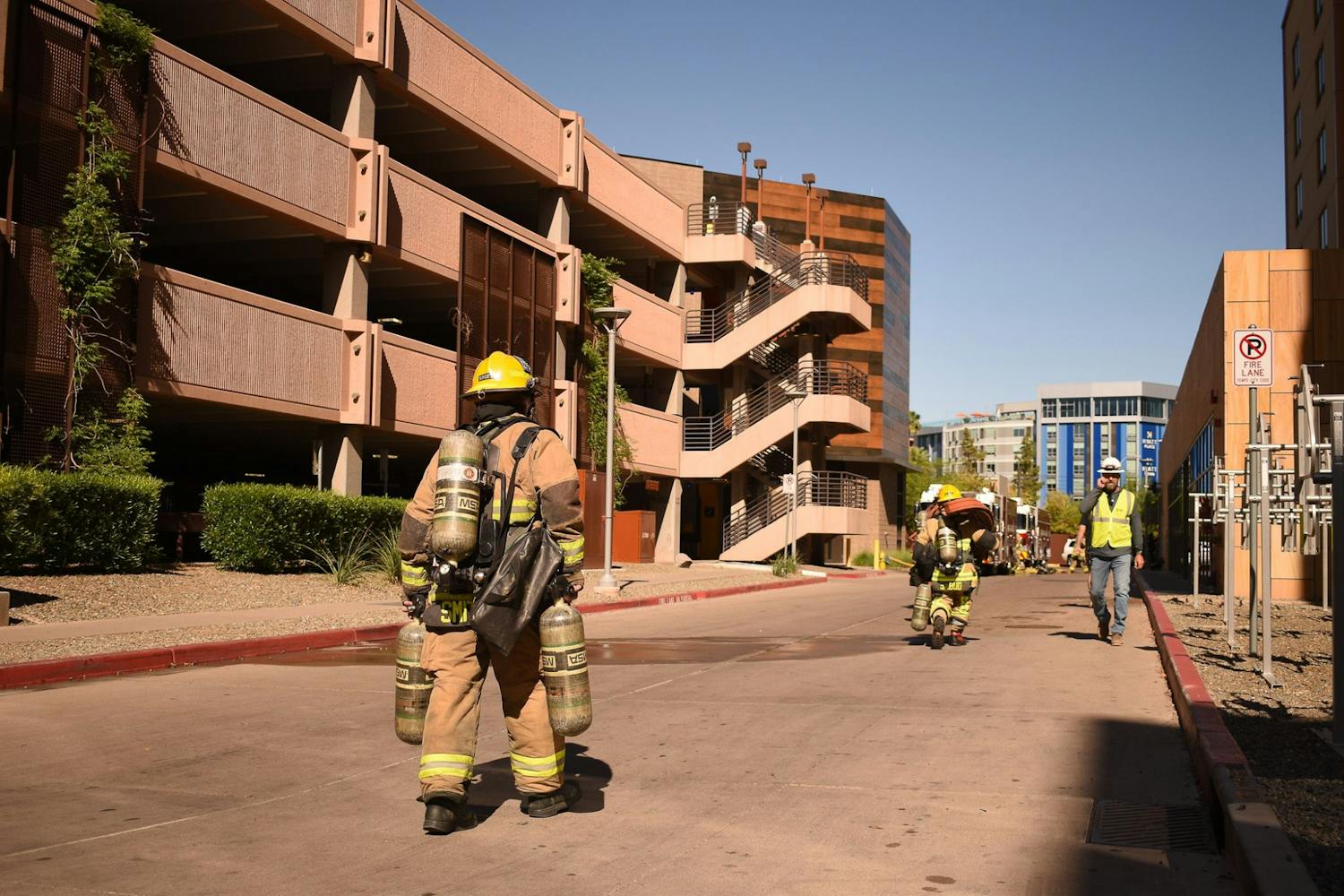The use of drugs and alcohol has become a major part of social life on college campuses. It's hard to find a college party that doesn't involve alcohol, and it seems like it's becoming equally common to see partygoers with vapes in hand.
Students are often unaware of the effects of substance abuse and dependency when they are surrounded by people exhibiting those very symptoms.
Students aren't always conscious of the point where the casual social substance use becomes dependency or addiction. Even when someone does realize they have a problem, some can be too ashamed or afraid to ask for help.
Organizations like ASU's Recovery Rising are particularly important because they provide a network for students to come forward and get the support they need in a secure environment.
Recovery Rising, ASU's collegiate recovery program, started two and a half years ago and hosts events, discussions and meetings for students struggling with drug or alcohol addiction.
"We are an advocacy group with the aim to increase the visibility of recovery as a lifestyle," student coordinator for Recovery Rising, Nathaniel Harris, a religious studies senior said. "We want to connect students in recovery with each other, educate by creating a recovery-inclusive environment and provide programmatic support across departments."
According to the National Center on Addiction and Substance Abuse , half of all full-time college students in the U.S. binge drink and abuse prescription or illegal drugs.
"There really is no way to know for sure how many people are potentially suffering from substance abuse," Harris said. "We are here to change the cultural narrative so that they can receive the support they need."
In the past, ASU was a renowned party school, and while that association may mot be as prevalent now, addiction awareness is still critical for students who choose to engage in party culture. Students need to understand that if they feel like they are struggling with an addiction, they should not be afraid to come forward and ask for help.
"The hope is that any student participating in any meeting or event feels safe and included," Harris said. "The very nature of traditional recovery meetings is dependent on this, so we do our best to ensure an environment that fosters recovery and connectivity."
In regard to prescription abuse, it's common for students to illegally use prescription drugs to help manage their commitments and course load. With so many students across the country abusing substances that are easy to obtain, more should be done to support those who need help.
A 2013 study from Brigham Young University found that students felt comfortable talking about using Adderall on Twitter. Over the course of six months, more than 210,000 tweets were collected that mentioned Adderall from roughly 132,000 unique accounts.
Alcohol and prescription medications are the most commonly abused substances on college campuses, but harder drugs like cocaine are becoming more prevalent.
Therefore, because this is such an extensive issue in the college community, having support groups on campus like Recovery Rising is essential to helping struggling students realize and overcome their addictions.
Dependency on a substance to get things done is a serious issue, and it is important that students know that there are resources at ASU to help them combat addiction in a nonjudgmental environment.
"I want people to know that you are not alone," Harris said. "There is help. Take things one thing at a time. You are worth it."
Reach the columnist at adunn11@asu.edu or follow @adrienne_dunn on Twitter.
Editor’s note: The opinions presented in this column are the author’s and do not imply any endorsement from The State Press or its editors.
Want to join the conversation? Send an email to opiniondesk.statepress@gmail.com. Keep letters under 500 words and be sure to include your university affiliation. Anonymity will not be granted.
Like The State Press on Facebook and follow @statepress on Twitter.




